Behind the scenes of the Senate's approval of labor reform: What's next for conciliation?

Without reaching any agreements, but in the manner President Gustavo Petro had hoped, this was the approval of the labor reform in the Senate plenary session. On Tuesday morning, the outlook for the Executive branch's plans seemed bleak, but at the close of the session, the balance showed more victories than defeats, especially on the red lines : nighttime surcharges starting at 7 p.m. for everyone, denying hourly work and employment contracts for SENA apprentices.
Monday's session adjourned early as a final attempt to reach agreements and reconcile positions on the aforementioned issues. Senate President Efraín Cepeda issued an ultimatum: if no agreement was reached, they would go to a "clean vote."
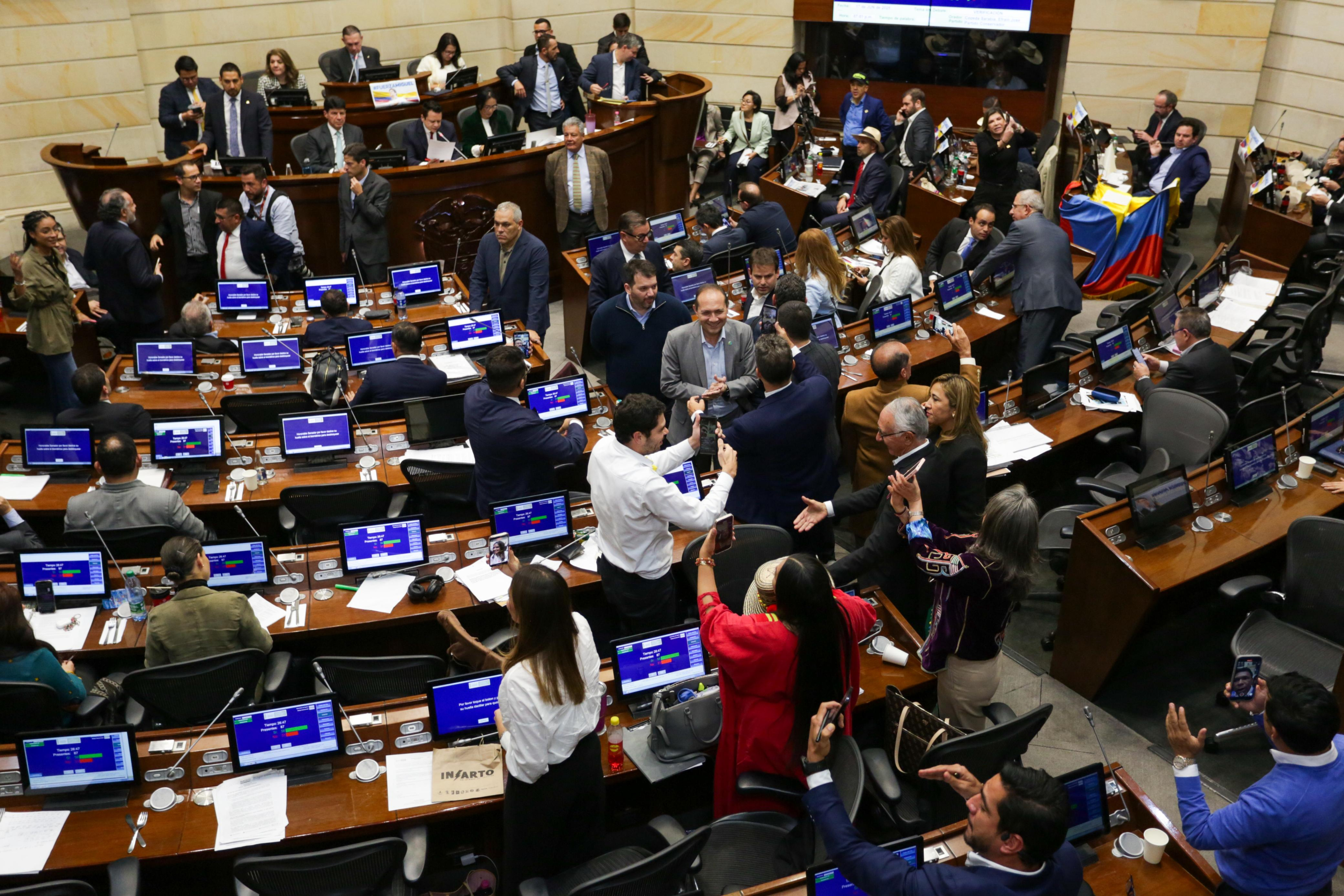
The reform was approved with 56 votes in favor and 31 votes against. Photo: César Melgarejo/ El Tiempo @cesarmelgarejoa
On Tuesday morning, it was learned that no agreement had been reached and that the differences in the articles would be resolved in the plenary session, with the respective votes. Initially, it was thought that this was adverse to the interests of the Petro government and its allies. In the previous sessions , they were defeated on every point the plenary session discussed.
Everything seemed to indicate it would be the same. There were even moves from the opposition on Monday night to ensure that this would happen: they insisted that their colleagues from the Democratic Center attend the plenary session. They withdrew when Senator Miguel Uribe's adverse health report became known, and there were doubts about his presence on Tuesday. Without them, it was difficult to stand up to the government. They were called to guarantee their presence at the session.
However, in the end, even with the Uribe faction almost entirely in place, they were unable to halt the government's various victories. The session began with the ruling party defeated, as it was thought it would continue its trend of denying the Petro government its proposals due to its failure to reconcile their positions. However, when the first crucial article, the Sena apprenticeship contract, came a surprise.
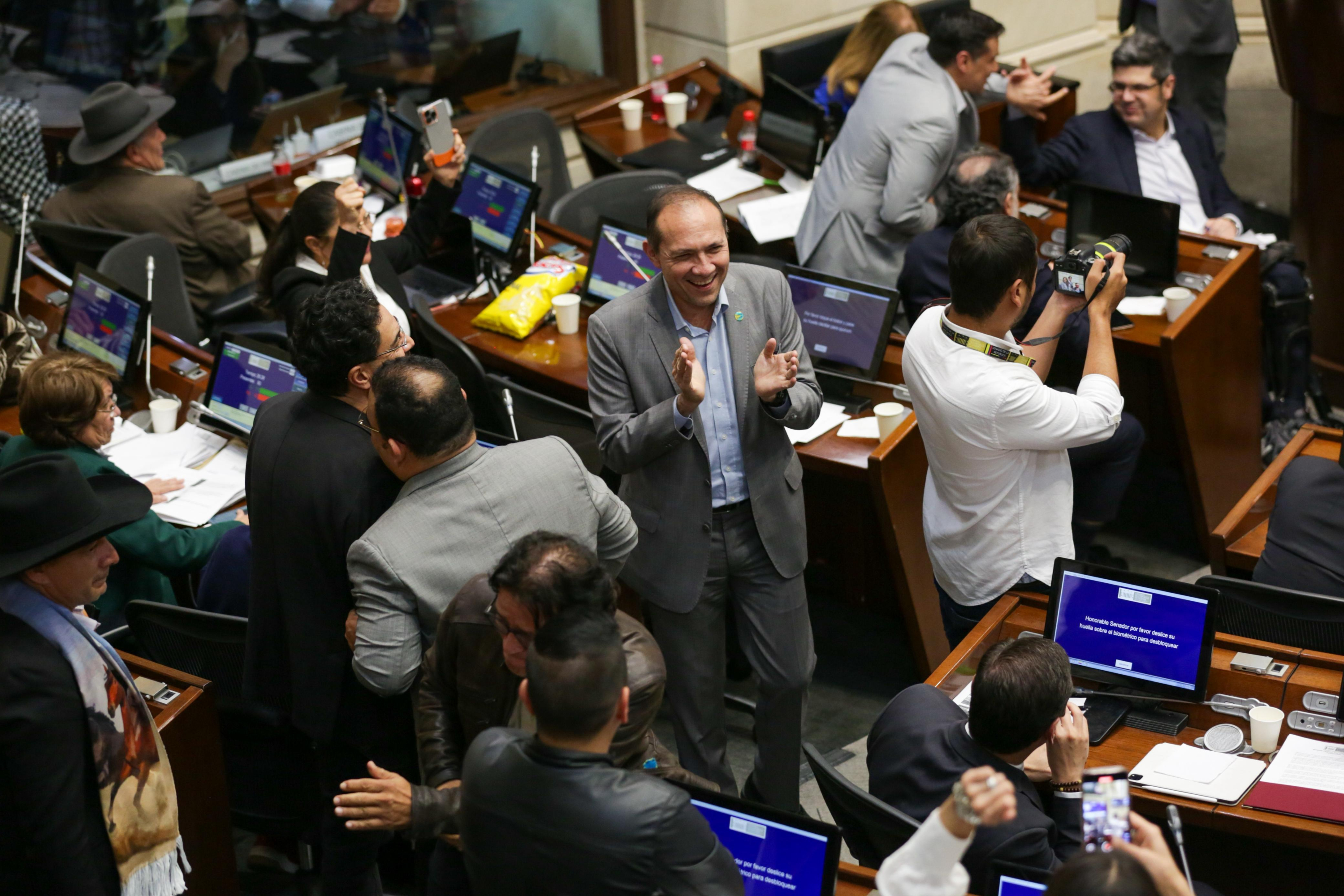
Minister of Labor Antonio Sanguino during the labor reform debate. Photo: César Melgarejo. El Tiempo
Contrary to the estimates made by various sectors, the Executive branch had the majority. With a vote of 47 against and 46 in favor, the article seeking to maintain the contract for SENA apprentices under the current form was rejected . This meant that the plenary session would adopt the positions insisted upon by President Gustavo Petro, and this was the case in each of the central votes.
The article was then amended to achieve what the Executive Branch had proposed in the House: that SENA apprentices would now have full employment contracts, with their respective vacation time, pension contributions, and other benefits. The ruling party's victory was even greater: it reached 51 votes to 43.
According to senators close to the government, the change in the plenary session had much to do with the work the ministers did on Monday night. Instead of reaching agreements with the opposition, they held several meetings with the senators who have supported them recently, calling them to order.
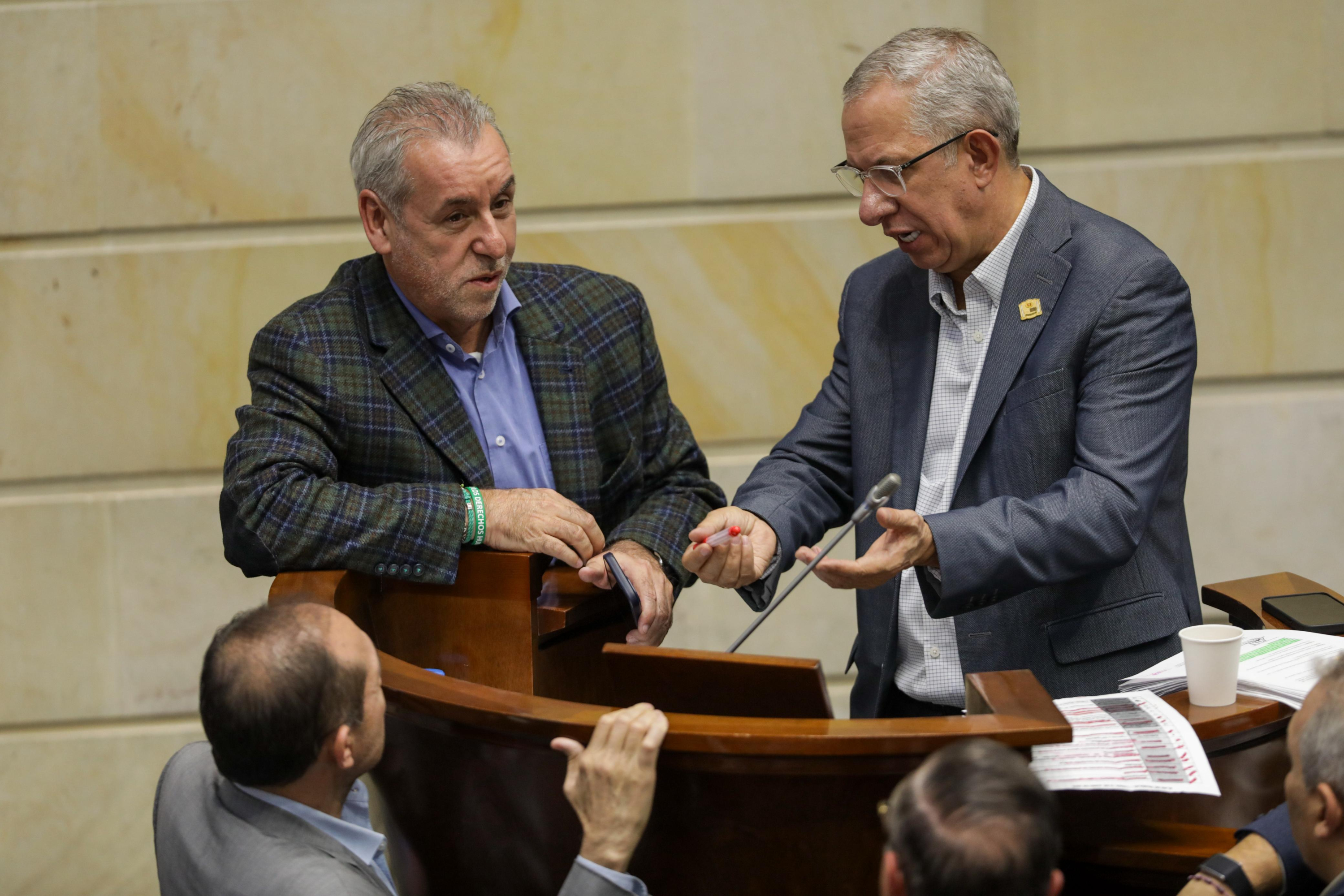
Senator Jhon Jairo Roldán, the bill's sponsor. Photo: César Melgarejo/El Tiempo @cesarmelgarejoa
This was evident in the votes, in which the Liberals and the U Party voted overwhelmingly. Likewise, the Conservative senators who have been close to the government (Carlos Trujillo and his allies) withdrew when it came to issuing a decision, as their party's mandate was to vote no on each of the points proposed by the Executive.
In a similar vein, it was striking that several senators from the Cambio Radical party joined the government's support group. Not only did Senators Temístocles Ortega and Ana María Castañeda, who have been close to the executive branch's proposals on other occasions, but Didier Lobo and Carlos Julio González also joined this group . Thus, Petro's labor reform garnered support from parties that have been distant in recent times.
The outcome of the Sena apprenticeship contract set the tone for the rest of the plenary session. There were lengthy debates, in which the opposition argued their reasons for departing from the ruling party's position. However, when it came to voting, the Petrista party's intentions prevailed.
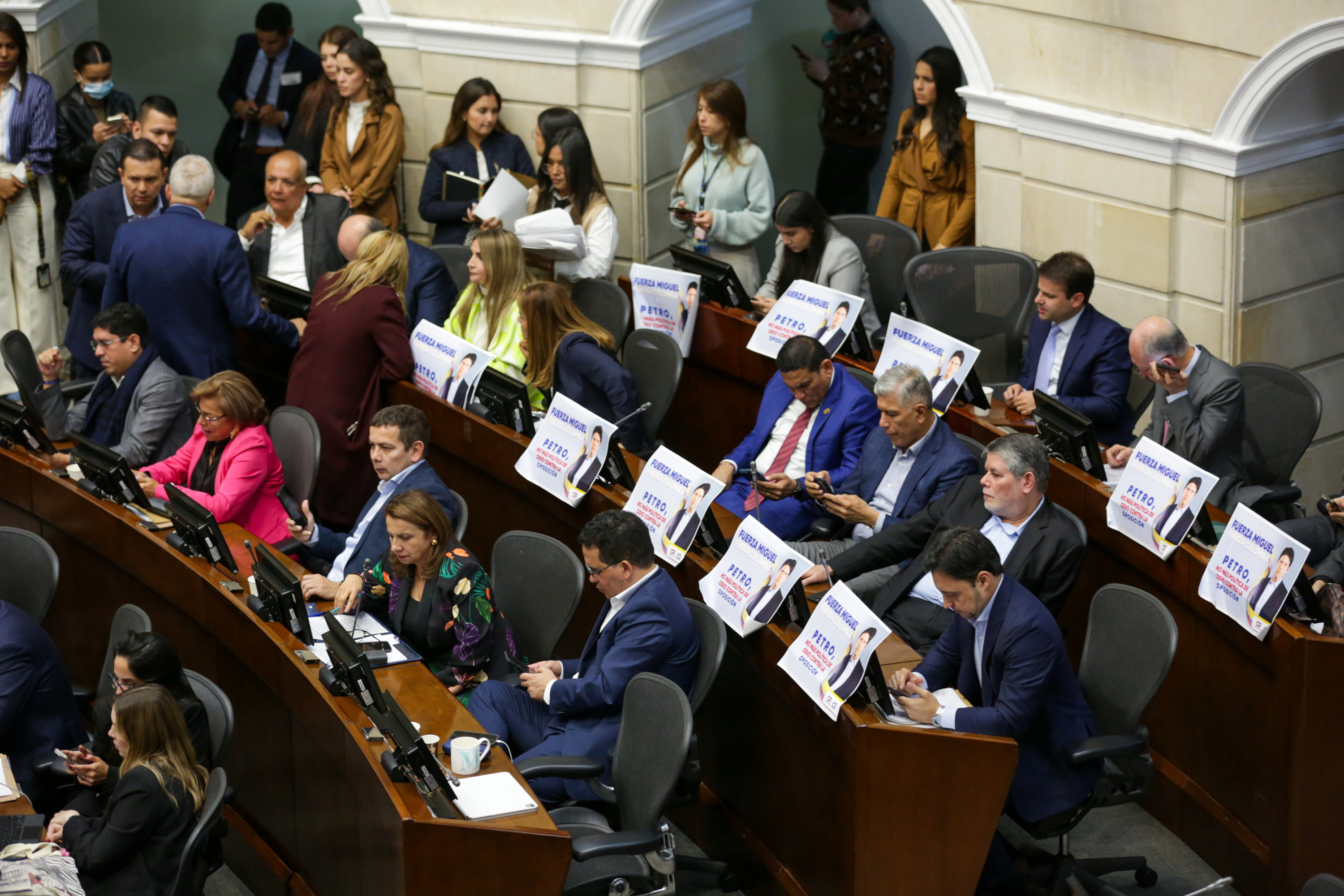
Discussion of labor reform in the Senate plenary session. Photo: César Melgarejo/El Tiempo @melgarejocesarnew
This was the case on issues such as hourly hiring, nighttime surcharges, and Sunday and holiday pay. The government won on each of these points. Only on the first issue was there a first vote that ended in a 47-47 tie, and when the vote was repeated, the plenary session swung in favor of the Executive Branch. The only thing that jeopardized the overwhelming success of the Petro government's machinery was the false announcement of the alleged death of Senator Miguel Uribe.
Although the information was quickly denied by the Democratic Center congressman's communications team, its effects were felt in the Uribe party. On the right side of the chamber, some senators were seen crying and raising their voices. It's worth remembering that on Monday they walked out of the plenary session, and it was suspended due to the notable absence. However, a few minutes later, it was clarified that the medical report was untrue, and the legislative process continued. Even so, the impact and tension generated by the false information was evident on the faces of the Uribe congressmen.
Another incident during the session was the clash between Senators Isabel Zuleta (Pact Histórico) and Angélica Lozano (Alianza Verde). The Petrista congresswoman leaked a screenshot on social media of a group the centrist congresswoman has with the press, exposing the phone numbers of the latter's advisors. Lozano criticized her in the middle of the plenary session and even called her a "professional at burning people," referring to the video in which Zuleta said she had "burned" Sergio Fajardo.
However, none of these points affected the room for maneuver achieved by the Petro administration. Thus, the proposal that emerged from the Senate is very similar to the text passed in the House. Now the question remains: What will President Petro do with the "decree" and what has been called the 2.0 referendum—the original text containing the labor reform questions and new ones related to the health care reform?
The Executive branch announced that it would repeal the decree calling for the referendum, ignoring the Senate's rejection, and that it would also rule out the new request to go to the polls to decide the future of the two social reforms. "If the Senate approves the labor reform, the decree will be repealed," said Interior Minister Armando Benedetti.
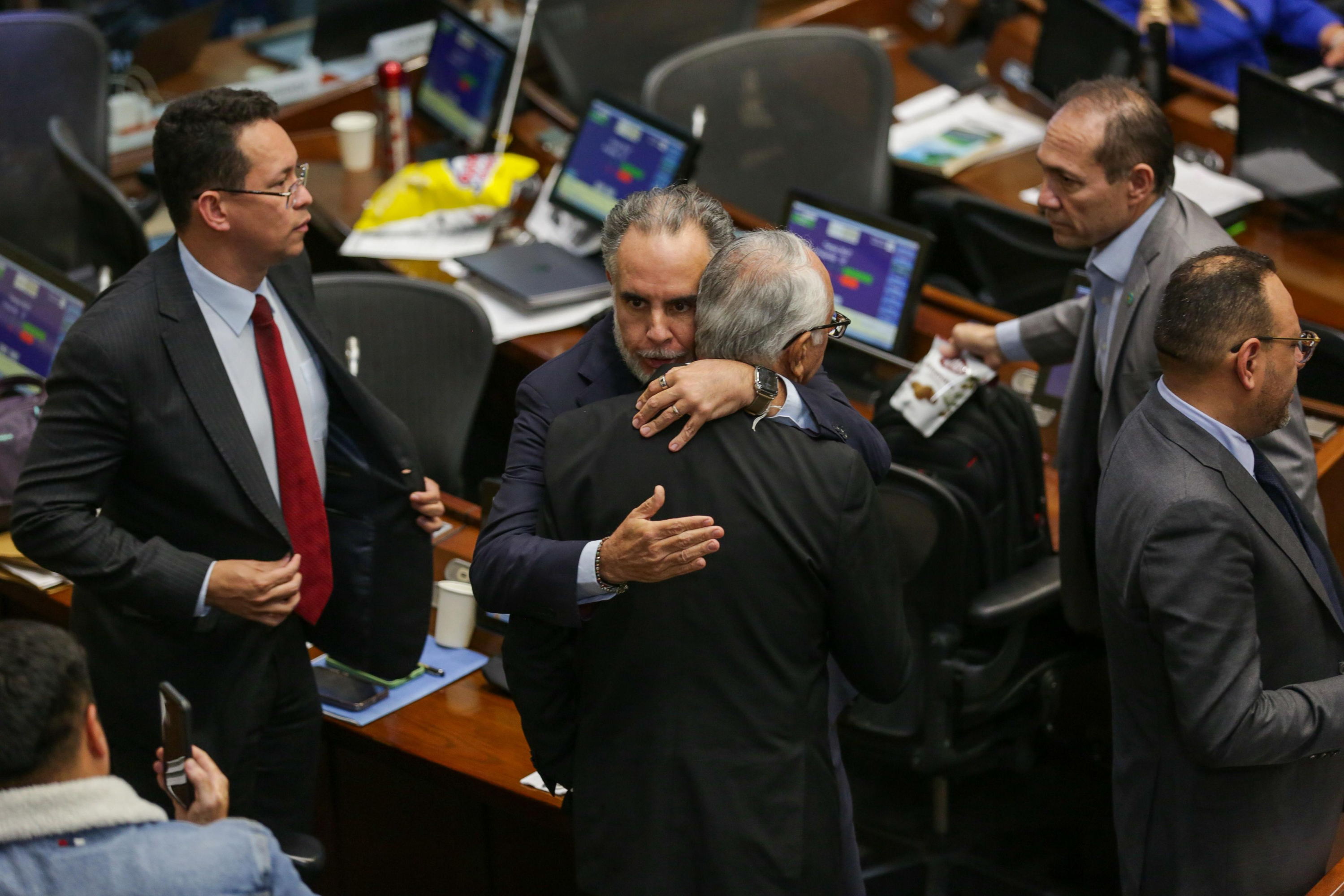
Interior Minister Armando Benedetti, along with Health Minister Guillermo Alfonso Jaramillo. Photo: César Melgarejo/ El Tiempo @cesarmelgarejoa
With the text as it emerges from the Senate, reconciliation in the House will be easy, as both proposals are very similar. Conciliators are expected to be appointed this Wednesday, and it won't take long to standardize the texts. This announcement will be made at each plenary session on Thursday, and the reconciled text will be approved on Friday, June 20—the last day of the legislative session.
This means that President Gustavo Petro's arguments for insisting on the referendum and his threat to seek a constituent assembly are being taken away. The question is whether he will fulfill his commitment. On the other hand, the vote on the labor reform was barely completed when the referendum 2.0 was voted on. The plenary session rejected it, thus avoiding waiting for the president to fulfill one of his commitments.
Juan Sebastian Lombo Delgado
eltiempo




